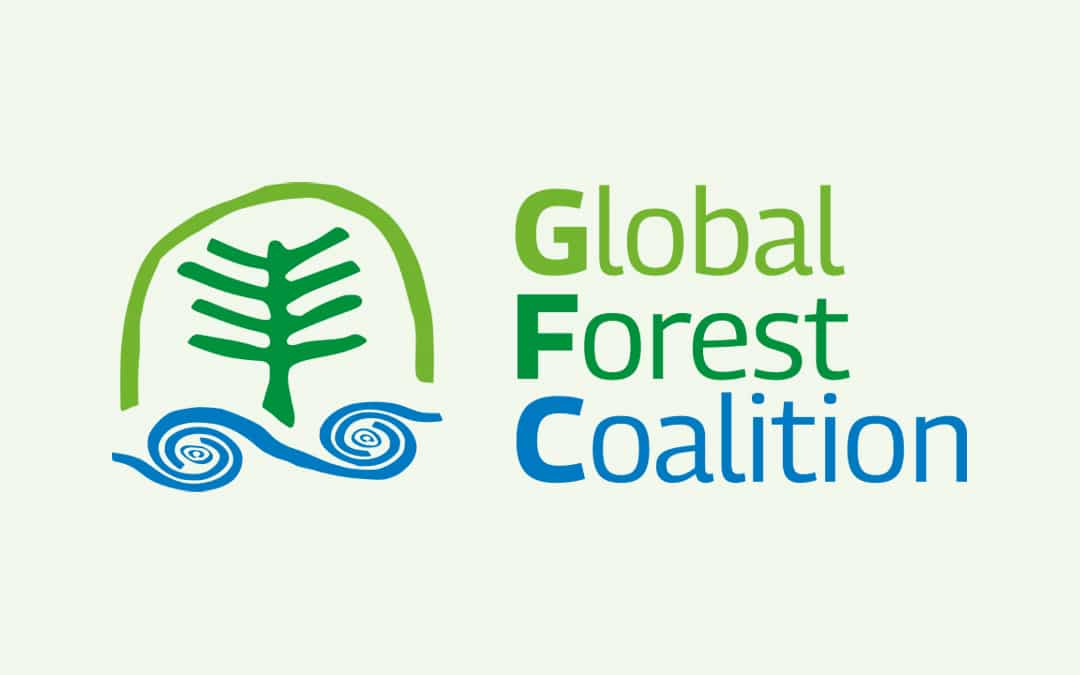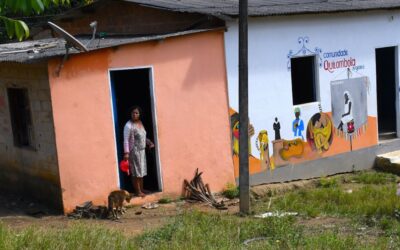[September 2015, Climate Space Statement, Español, Français]
Today, just few months before the 21st Conference of Parties of the United Nations Framework Convention on Climate Change (UNFCCC COP21) in Paris in December 2015, we see with great foreboding that a very bad deal is coalescing. The consequences of the problematic UNFCCC process leading towards the Paris deal are incredibly grave. If the world is locked into another decade of burning the planet, there will be disastrous consequences including the loss of biodiversity, mass extinctions, loss of habitat, the flooding of Small Island States, and the melting of Polar Regions. The predicted negative outcome in Paris will notably have a disproportionate impact on local communities, and indigenous and marginalized peoples.
A recent study shows that the current emission reduction pledges from US, EU and China – who together account for 45% of global emissions – are grossly inadequate, and if implemented will almost double the 2030 target of 35 Gigatons of CO2e emissions. [1] Instead of real reductions and solutions, the proposed increase in carbon market and techno-fixes, such as carbon capture and storage (CCS) will only worsen the situation and open a dangerous path towards climate manipulation through geoengineering.
Intended Contributions are Severely Insufficient
After twenty COPs, emissions of greenhouse gases continue to rise and are forecasted to increase even further. In 1990 global emissions were at the level of 38 GtCO2e. Twenty years later they have reached a perilous 50 Gt CO2e. To avoid a catastrophic increase of 2°C in global temperature, worldwide emissions of greenhouse gases should have peaked last year and then begun their decline. However, the peaking year will not be reached this decade and probably not even the next.
The United Nations Environment Program’s Emissions Gap report and other studies show that to be consistent with a trajectory that limits the increase of the temperature to 2ºC, global greenhouse gas emissions should be reduced to 44 Gigatons (Gt) of CO2e by 2020, to 40 by 2025 and then to 35 by 2030. This is the cap that is needed to avoid a global future that is too dire to imagine. The UNFCCC’s draft text does not reference these figures and only mentions proposals related to percentage reductions for the next half of the century, which are nowhere near sufficient to the action that needs to be taken.
Just this past March, the European Union proudly announced its Intended Nationally Determined Contributions (INDCs). At first sight, the EU seems to aim for a 40% reduction in greenhouse gas emissions by 2030 (compared to 1990 levels), but the pledge is full of flaws and hot air. The most significant gaps in the commitment are caused by the fact that it continues to calculate for bioenergy as ‘carbon neutral’ ‘renewable’ energy. Moreover, due to significant carbon accounting flaws in the so-called Land Use, Land Use Change and Forestry (LULUCF) sector, the emissions caused by the forest degradation triggered by this bioenergy demand are not taken into account.
In the current UNFCCC proposal every country will do what they want through their voluntary INDCs and the UNFCCC will simply take note of them. The easiest way to understand this is to visualize a scenario where a great fire is coming and everyone needs to commit to stop it, some more than others because of historical responsibility. The UNFCCC should be holding all nations to account, instead, countries are allowed to simply contribute what they feel is necessary, whether a glass of water or a bucket. The UNFCCC will just keep track of all of these contributions, not caring if the fire engulfs us all.
No government has challenged this suicidal path by demanding that the negotiating text include a global target to reduce global emissions to only 40 Gt of CO2e by 2025 to avoid an increase in the temperature of 4ºC to 8 ºC. In reality some governments are pledging even more lax reductions like Canada for example who says that it will only reduce emissions by 14% between 1990 and 2030.
The Corporate and Fossil Fuel Industry Capture of the COP
It is well known that to achieve the goal to limit the temperature increase to below 2ºC, we need to leave 80% of the current known fossil fuel reserves under the ground. This has been stated in many studies, reports and interventions, but not one single country has submitted this proposal in the current text of negotiations. The word “fossil fuels” only appears twice throughout the text and only in reference to the reduction of fossil fuel subsidies. It is impossible to make genuine, deep emission cuts if the fossil fuel industry is not confronted head on.
On the contrary, French officials are defending the acceptance of financial support for COP21 from fossil fuel firms and large corporate carbon emitters. Dirty energy corporations such as EDF, Engie (formerly known as GDF Suez), Air France, Renault-Nissan and BNP Paribas will fund 20 percent of the 170million Euro costs of the Paris COP21.[2] The public trust is being subverted when multilateral negotiations designed to stop pollution are funded by the biggest polluters.
More markets, loopholes, and damaging technologies
Despite the clear failure of carbon markets, the proposals on the table for Paris are all about how to enhance the current market mechanisms and develop new ones, including the development of high risk technologies.
False solutions abound like carbon pricing, climate smart agriculture, REDD+, BECCS, Carbon Capture and Storage, bioenergy, nuclear, synthetic biology, geo-engineering, fracking and other technological proposals that arrogantly claim to be able to cheat Mother Earth.
Carbon market mechanisms are mentioned 27 times and REDD+ 13 times. In the text there are mentions of an “enhanced Clean Development Mechanism (CDM+),” the “Emissions Trading System (ETS),” “REDD Plus,” “market mechanism in the land use sector,” “sub-national and regional emissions schemes” and “carbon pricing.” A reading of the text shows that COP 21 will open the door for new carbon market mechanisms that will be developed and agreed to at future COPs. In addition, the largest oil companies, the biggest culprits for climate change, are now telling the UNFCCC that they will save the planet with carbon capture and storage technologies and bioenergy (CCS and BECCS, both geoengineering proposals) while they continue to exploit the planet’s most unconventional sources of oil.(3)
Changing the System is our Hope for Reclaiming our Future
We know what is going to come out of Paris and it is not going to be the system change that we want but more corporate power, more carbon markets, and more dangerous techno fixes that will lead to the financialization of nature. We know what is going to come out of Paris and it will not be about leaving fossil fuels under the ground, but will be about ambiguous concepts like “net zero emissions” that will open the door to geo-engineering.
We are therefore prepared to march to Paris like we did in New York, however we hope for a situation more like Seattle so that the UNFCCC and governments will finally learn that there is a mass movement that will not accept business as usual. This movement needs to: dismantle the process of climate negotiations that have been captured by corporations; stop a very bad deal that will burn the planet; and build a political, ecological and economic system that is good for the people and Mother Earth.
System Change for the people and Mother Earth means to:
- Leave fossil fuels under the ground and under the ocean floor and to have clear binding targets for emission cuts for this decade and the next. It is a call to stop false solutions like carbon pricing, climate smart agriculture, REDD +, BECCS (bioenergy with CCS), Carbon Capture and Storage, bioenergy, nuclear, synthetic biology, geo-engineering, fracking and other false solutions that treat Mother Earth like a thing that can be exploited;
- Stop the big projects of industrial infrastructure such as airports, high speed railways, extractive industries, huge industrial farms, dams, all of which are projects designed to accelerate growth and result in increased global emissions;
- Dismantle free trade agreements like TTIP, TPP, ISDS and the WTO;
- End all austerity measure and cancel the debts imposed to benefit the banks. System change can only be achieved if we transform radically the banking and financial systems;
- Reclaim real democracy for the people and not for corporations;
- End all wars and military intervention.
For all these reasons, we need a radical system change. Neither the planet nor the people and societies can bear capitalism, which is intrinsically founded on anthropocentrism, productivism, patriarchy and neo-colonialism. Therefore, we must confront the capitalist model of accumulation and reclaim democracy for the people and not for corporations. Not only to move to a system based on genuine and public sustainable energy but also to a socially just low energy society where we stop overconsumption, over production and waste.
System Change is not going to come from States in collusion with transnational corporations but from people on the ground and frontline communities resisting fossil fuel development. It will take all of us, it will take everyone: from small farmers and peasants that are cooling the planet with agroecology and food sovereignty; from indigenous peoples who preserve Mother Earth and implement community conservation, traditional knowledge and protection of the forests; from citizens that confront coal plants in their communities, and other big projects including free trade; from students who are promoting disinvestment from fossil fuels and many others grassroots movements.
System Change is not something that will happen in the future. System change is something that we are building here and now.
Our strategy is not to wait for Paris to see what happens. We are saying now and before Paris: we don’t trust the UNFCCC and the corporations that have captured the process. The movement for systems change is growing and various sectors of society are getting mobilized and are aligning around common action on the road to Paris, during the UNFCCC negotiations and beyond.
We have all long hoped for the possibility of another world. Today, we take that hope and turn it into courage, strength and action, so that together we can change the system. If there is to be a future for humanity, we need to fight for it right now.
SIGNED:
Initiating Organizations of the Climate Space
- Alternatives International
- ATTAC France
- BiofuelWatch
- Critical Information Collective
- Ecologistas en Accion
- ETC Group
- Fairwatch, Italy
- Focus on the Global South
- Fundación Solón
- Grassroots Global Justice Alliance
- Global Forest Coalition
- Health of Mother Earth Foundation, (HOMEF) Nigeria
- Indigenous Environmental Network
- La Via Campesina
- No-REDD Africa Network
- Migrants Rights International
- Oilwatch International
- Polaris Institute
- Transnational Institute
To endorse this statement: espaceclimat@gmail.com
REFERENCES:
[3] http://newsroom.unfccc.int/unfccc-newsroom/major-oil-companies-letter-to-un




